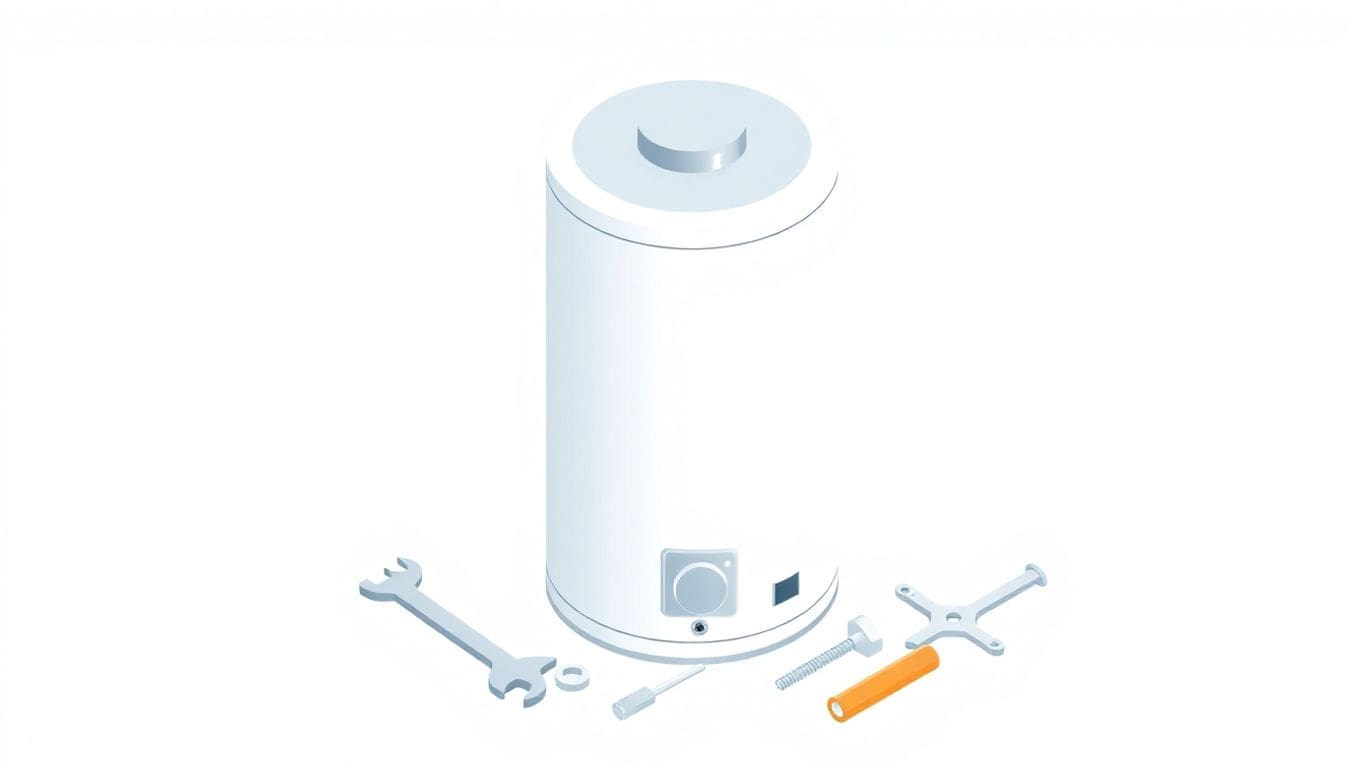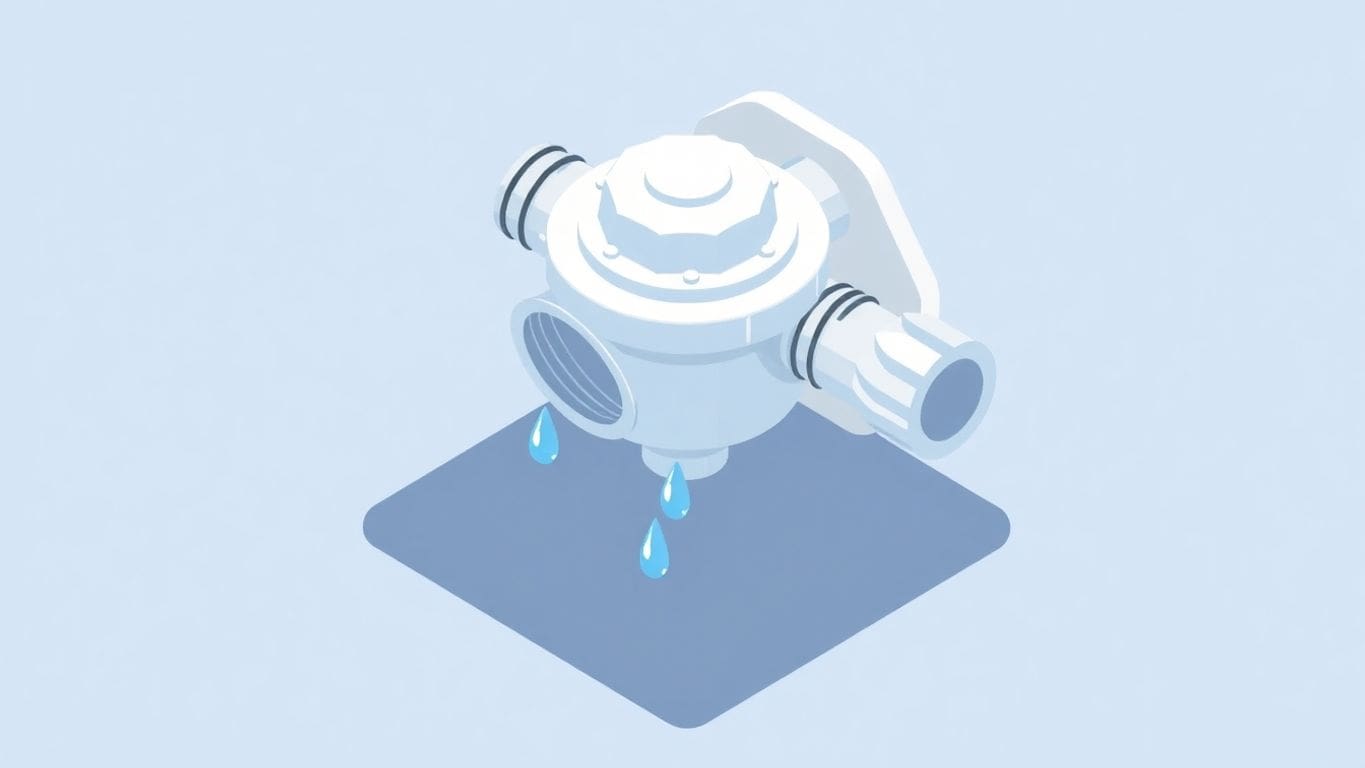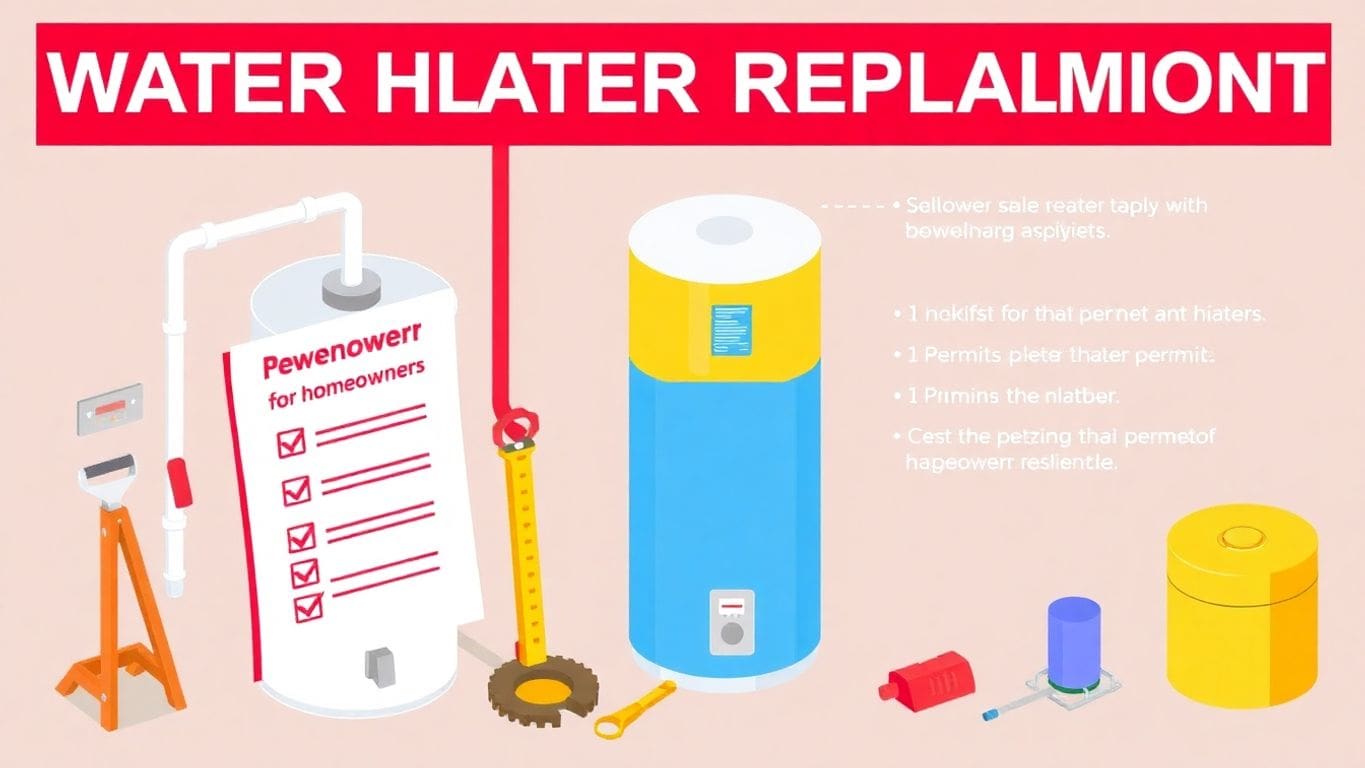
Living off the grid doesn’t mean you have to give up the comforts of hot water. Propane water heaters are a great solution for off-grid cabins, providing efficient and reliable hot water without the need for electricity. In this guide, we’ll explore the best propane water heaters for off-grid cabin living, what features to look for, and how to maintain them for the long haul. Whether you’re new to off-grid living or a seasoned pro, finding the right water heater can make a big difference in your daily comfort and energy use.
Using a propane water heater in an off-grid cabin has some great perks. Propane heaters are super reliable. They give you hot water even when there’s no electricity. This means you can enjoy a warm shower after a long day, no matter where you are. Plus, they heat water quickly, which is perfect for busy mornings.
Another big plus is their portability. You can easily move them around if you need to change spots. This is handy if you’re setting up camp in different locations. Also, propane is a clean-burning fuel, which means it’s better for the environment compared to other fuels like coal or oil.
Of course, propane water heaters have their downsides too. One issue is that you need a steady supply of propane. If you run out, you might find yourself without hot water. This can be a hassle, especially in remote areas where refills aren’t close by.
Another challenge is the cost. Propane prices can go up, especially in winter when everyone is using more. It’s a good idea to plan ahead and budget for these changes. Also, setting up a propane system needs careful planning to ensure everything is safe and works well.
When you think about other ways to heat water off the grid, like solar or wood-burning heaters, propane comes out as a strong choice. Solar heaters are great for sunny places but might not work well on cloudy days. Wood-burning heaters need a lot of wood and can be tricky to manage.
Propane, on the other hand, provides a steady and reliable heat source. It’s less dependent on the weather and easier to control. While it might be more expensive than using wood, it offers more convenience and less hassle in the long run.
In the end, choosing a propane water heater for your off-grid cabin is about balancing convenience and cost. It’s a dependable way to ensure you have hot water whenever you need it, making life a bit more comfortable off the grid.
When you’re living off the grid, space is often limited. Choosing a propane water heater that is compact and easy to move can make life a lot easier. Look for models that are lightweight and designed for easy transport. This is especially important if you plan to move your heater between locations or need to store it away when not in use.
The heating capacity of a propane water heater tells you how much hot water it can produce in a given time. This is crucial if you have a large family or need hot water for multiple uses at once.
A propane water heater should be simple to operate and maintain. Ease of use means you can adjust settings without hassle, and maintenance should be minimal.
Having a reliable propane water heater can make off-grid living much more comfortable. It’s important to weigh these features carefully to find the best fit for your needs. Remember, a little research now can save you a lot of trouble later.
Tankless propane water heaters are super efficient. They heat water only when you need it, so you’re not wasting energy keeping a big tank of water hot all the time. This means your energy bills could be lower. Using less energy is good for your wallet and the planet.
With a tankless system, you get hot water whenever you want. You won’t run out of hot water during a shower because it heats the water as it flows through the system. Imagine having endless hot water for showers, dishes, and laundry!
Tankless heaters are small and can be mounted on a wall, freeing up space. This is great for small cabins where every inch counts. But remember, installing one might need some extra work if you’re switching from a traditional tank heater. You might need to upgrade your gas or electric lines. It’s a good idea to talk to a pro about this.
Choosing a tankless propane water heater can be a smart move for off-grid living. It’s efficient, space-saving, and provides all the hot water you need, when you need it. Plus, with no big tank taking up space, you’ll have more room for other things in your cabin.
Remember, while the initial cost might be higher, the long-term savings and convenience make it a worthwhile investment. If you’re considering upgrading your old water heater, replacing a water heater over 15 years old can boost safety and cut energy costs.
When you’re living off the grid, finding the right propane water heater can make all the difference. Choosing the best brand ensures you have reliable hot water whenever you need it. Let’s take a look at some trusted names.
Rinnai is well-known for its high-quality water heaters. These units are efficient and durable, making them ideal for off-grid living. Rinnai heaters often come with advanced features like freeze protection and energy-saving modes. They are built to last, with many models offering a lifespan of up to 20 years. You might want to check for any energy efficiency rebates available when purchasing a Rinnai heater.
Camplux offers water heaters that are both affordable and dependable. These heaters are perfect for those on a budget but who still want quality. Camplux units are easy to install and maintain, making them a favorite among off-grid enthusiasts. They are lightweight and portable, so if you like moving around or need a temporary setup, Camplux is a great choice.
Camp Chef specializes in outdoor equipment, and their water heaters are no exception. These heaters are designed for easy installation and use, often requiring minimal setup. Camp Chef heaters are perfect if you love outdoor adventures or have a cabin in the woods. They offer quick heating and are built to withstand the elements, ensuring you have hot water even in remote locations.
Remember, the right propane water heater can make your off-grid experience much more comfortable. Take the time to consider which brand fits your needs best. Whether you prioritize efficiency, affordability, or durability, there’s a brand out there for you.
When setting up a propane water heater in your cabin, proper venting is crucial. This ensures harmful gases don’t build up inside. Always check the manufacturer’s guidelines. Some heaters are made for outdoor use only, while others need specific venting setups indoors.
Picking the right spot for your heater can make a big difference. You want a place that’s easy to access for maintenance but safe from damage.
Deciding whether to install the heater yourself or hire a pro can be tough. If you’re handy, a DIY job might save money. But sometimes, getting a professional ensures everything is done safely and up to code.
Installing a propane water heater isn’t just about hooking it up. It’s about ensuring safety and efficiency for years to come. Take the time to do it right, and your cabin will be cozy and warm, no matter the weather outside.
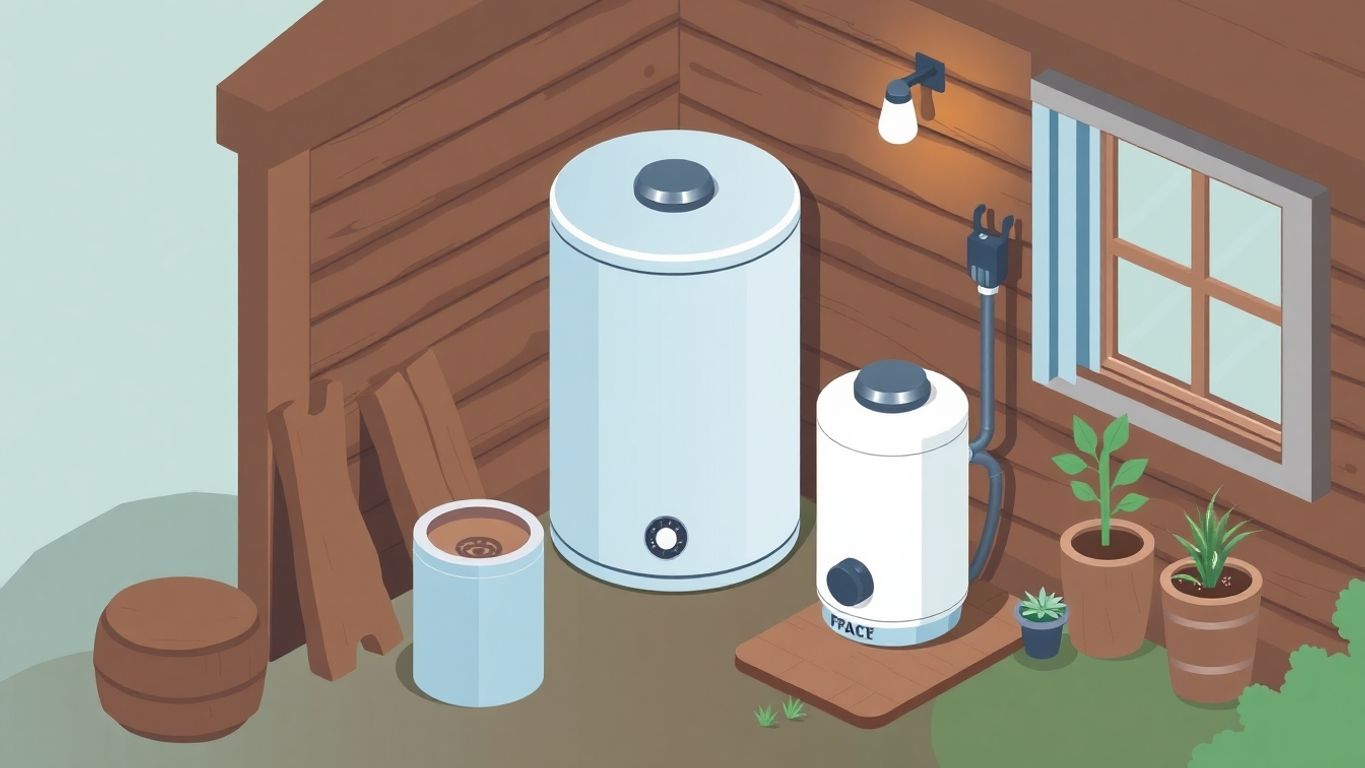
Keeping your propane water heater in top shape means giving it a good clean now and then. Dust and dirt can build up over time, affecting how well it works. Make sure to clean the exterior regularly and check for any signs of rust or wear. It’s also a good idea to inspect the burner and pilot light to ensure they’re functioning properly. If you notice any strange noises or smells, it might be time to take a closer look.
Even the best heaters can have hiccups. If your water isn’t getting hot enough, or if it’s too hot, check the thermostat settings. Sometimes, sediment can build up inside the tank, which can mess with the heating. Flushing the tank can help clear this out. If you find leaks or the heater isn’t working at all, it might be time to call a professional.
There are times when a DIY fix just won’t cut it. If your water heater is old and showing signs like strange noises or inconsistent temperatures, it might be time for an upgrade. Consider eco-friendly options like tankless models that save energy and money. For serious issues like gas leaks or major malfunctions, don’t hesitate to reach out to a professional. They can ensure everything is safe and working as it should.
Taking care of your propane water heater not only keeps it running smoothly but also extends its life. Regular maintenance can prevent unexpected breakdowns and costly repairs. So, keep an eye on it, and don’t ignore the small stuff. It can save you a lot of trouble down the road.
Using solar energy to heat water is like getting free hot water from the sun. Solar water heaters use panels that soak up sunlight, turning it into heat for your water. This method is great because it doesn’t use any fuel, so it’s eco-friendly. But, it heavily depends on sunny weather. On cloudy days, you might find the water isn’t as hot as you’d like. Also, the initial cost to set up solar panels can be high. But once they’re up, the sun does the rest for free!
Some folks like to mix both propane and solar systems to get the best of both worlds. This way, you use solar power when it’s sunny and switch to propane when it’s not. This combo can be super handy because it ensures you always have hot water. Plus, it can save you money in the long run since you’re not always using propane. It’s like having a backup plan for those cloudy days.
Let’s talk dollars and cents. Setting up solar water heaters can cost more upfront. But, once they’re running, they save you money on fuel bills. Propane heaters, on the other hand, are usually cheaper to install but need regular fuel purchases. Here’s a simple breakdown:
| Feature | Solar Water Heater | Propane Water Heater |
|---|---|---|
| Initial Cost | High | Lower |
| Running Cost | Low | Higher |
| Eco-Friendliness | High | Medium |
If you’re living off-grid, think about your budget and how much sun your place gets. Mixing solar with propane might be the best way to enjoy hot water without breaking the bank.
When you’re living off the grid, safety with propane is super important. Propane is a great fuel, but it needs to be handled with care. Always check your propane connections to make sure there are no leaks. You can use a bit of soapy water at the joints – if you see bubbles, you’ve got a leak. Make sure your heater is in good shape and follow the manual for safe use.
Propane water heaters can produce carbon monoxide, a dangerous gas you can’t see or smell. To keep your family safe, install a carbon monoxide detector near your heater. Also, make sure your heater is vented properly to the outside. Never block vents or use the heater in a closed space without ventilation.
It’s smart to have a plan in case something goes wrong. Know how to turn off your propane supply quickly. Keep a fire extinguisher nearby and make sure everyone knows how to use it. Practice what to do in an emergency, so everyone stays calm and knows their role.
Living off the grid with a propane water heater can be a comfortable experience, but safety should always come first. By being prepared and cautious, you can enjoy hot water without worries.
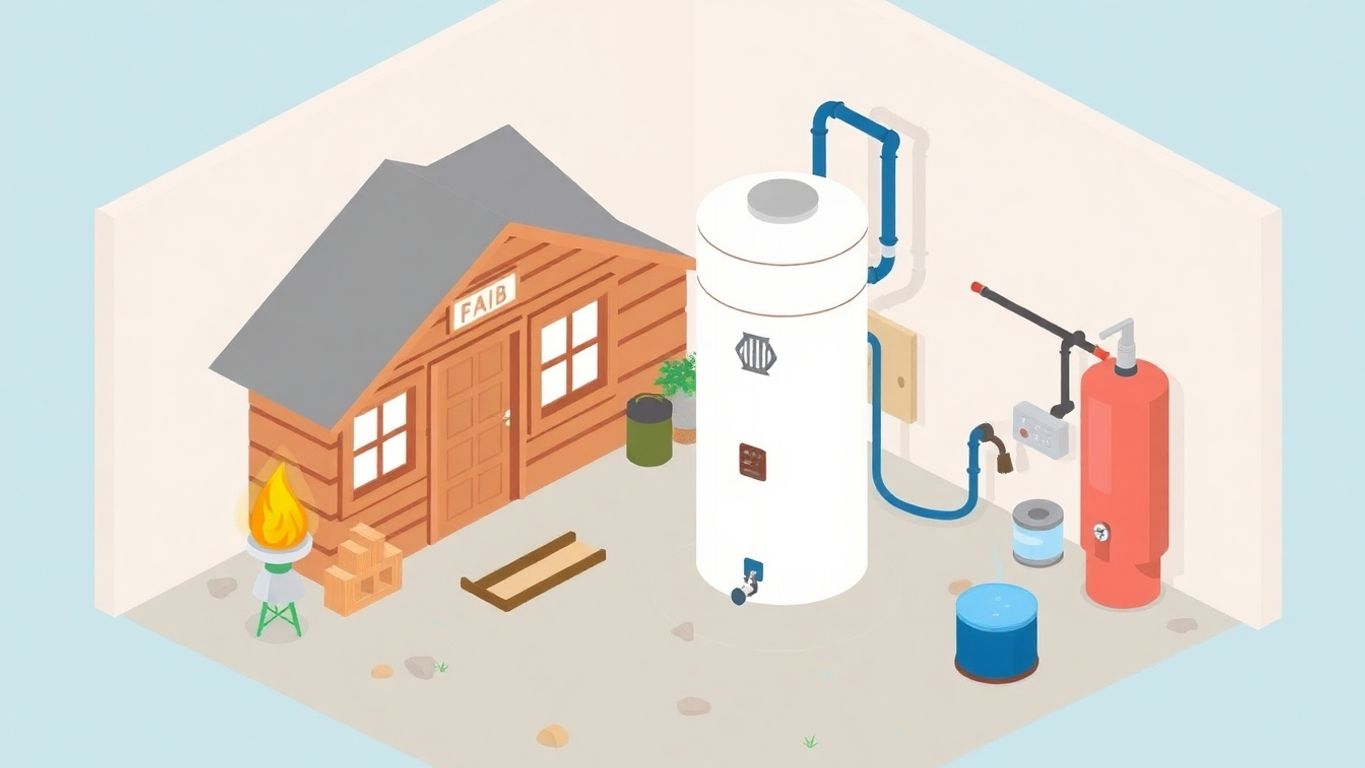
Living off-grid means being smart about how you use hot water. Every drop counts when you’re relying on limited resources. Here are some tips to help you save hot water:
Setting your water heater to the right temperature can make a big difference. Here’s how you can optimize your settings:
The changing seasons affect how much energy you need for heating water. Here are some seasonal tips:
Remember, every little change adds up. By being mindful of how you use hot water, you can make your off-grid living more efficient and enjoyable.
When planning for a propane water heater, it’s smart to start with the initial costs. A basic propane tankless heater can start at about $200, but prices can go up to $1,000 or more depending on the brand and features. Don’t forget the installation fees, which can add another $300 to $500 if you hire a professional. If you’re handy, you might save some bucks by doing it yourself, but make sure you know what you’re doing!
One of the best things about propane heaters is their efficiency. They heat water on demand, so you’re not wasting energy. This means lower utility bills over time. Plus, propane is a pretty efficient fuel, so you’ll get more bang for your buck compared to electric heaters. Keep an eye out for signs of a failing unit to ensure you maintain efficiency and save on energy bills.
Paying for a new heater can be tough, but there are ways to make it easier. Some stores offer financing plans, so you can pay over time instead of all at once. Also, check for any rebates or incentives in your area. Sometimes, local or state programs offer money back for installing energy-efficient appliances. It’s definitely worth looking into!
Living off the grid can be an adventure, especially when it comes to heating water. Many folks have shared their stories and experiences about using propane water heaters in their off-grid homes. One common theme is the balance between comfort and independence. People love that propane heaters provide hot water without needing electricity. This is especially handy during cold winters when solar power might not be enough.
One off-grid enthusiast mentioned how a propane tankless water heater transformed their daily routine. With endless hot water on demand, they no longer had to worry about running out during a shower. Another person shared how they use propane because it’s reliable and easy to refill, even in remote areas.
Using a propane water heater off grid comes with its own set of lessons. Here are a few tips from those who’ve been there:
When it comes to choosing a propane water heater, community recommendations can be invaluable. Many off-grid communities suggest brands like Rinnai and Camplux for their reliability and efficiency. They also recommend checking local suppliers for propane delivery options, which can be more convenient than hauling tanks yourself.
Living off the grid with propane water heaters is about finding what works best for you. It’s about making smart choices and learning from others who share your journey. Whether it’s finding the right heater or managing your propane supply, the community’s shared wisdom can be a guiding light.
A propane water heater uses propane gas to heat water for showers, sinks, and other uses. It’s popular in off-grid settings because it doesn’t need electricity.
A tankless propane water heater heats water directly as it flows through the unit, providing hot water on demand without storing it in a tank.
Yes, they are safe if installed and maintained correctly. It’s important to follow safety guidelines, especially regarding ventilation.
Propane heaters are often preferred off-grid because they don’t require electricity, making them more reliable in remote areas.
Propane heaters are efficient, provide hot water quickly, and are portable, making them ideal for off-grid living.
While some people choose to install it themselves, it’s recommended to have a professional do it to ensure safety and proper setup.
Regular maintenance includes checking for leaks, cleaning the unit, and inspecting the venting system to keep it running smoothly.
Yes, propane heaters can be cost-effective, especially in areas without access to electricity, as they use less fuel compared to electric heaters.

